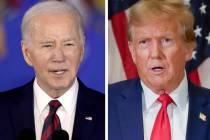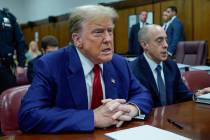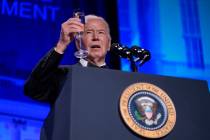Trump denies using vulgarity to describe Africa nations, Haiti
WASHINGTON — In bluntly vulgar language, President Donald Trump questioned Thursday why the U.S. would accept more immigrants from Haiti and “s—-hole countries” in Africa rather than places like Norway, as he rejected a bipartisan immigration deal, according to people briefed on the extraordinary Oval Office conversation. Trump on Friday denied using that language.
Trump’s contemptuous description of an entire continent startled lawmakers in the meeting and immediately revived charges that the president is racist. The White House did not deny his remark but issued a statement saying Trump supports immigration policies that welcome “those who can contribute to our society.”
Thursday the White House did not deny reports on Trump’s language. Instead spokesman Raj Shah said in a statement, “Certain Washington politicians choose to fight for foreign countries, but President Trump will always fight for the American people.”
The language used by me at the DACA meeting was tough, but this was not the language used. What was really tough was the outlandish proposal made - a big setback for DACA!
— Donald J. Trump (@realDonaldTrump) January 12, 2018
Yet Trump himself tweeted Friday: “The language used by me at the DACA meeting was tough, but this was not the language used.” He went on to criticize the immigration deal, saying: “What was really tough was the outlandish proposal made - a big setback for DACA!”
The White House did not immediately respond to questions about the president’s tweet.
This is a developing story. Check back for details.




























